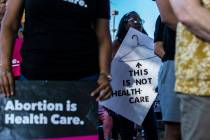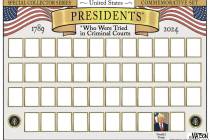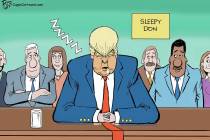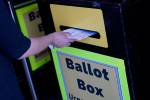Low voter turnout isn’t necessarily bad
It’s election season, so it’s time to bemoan low voter turnout. Americans do not vote in numbers comparable to the citizens of other democracies, we’re often reminded. Then the laments start: Low turnout is a sad commentary on the state of the republic. This year could be even sadder because many people don’t like either of the main parties’ presidential candidates.
For sure, low turnout can be a sign of frustration. However, for low turnout to distort the election, it must be that the people who do show up at the polls don’t represent the views of the citizenry as a whole.
But low-turnout elections aren’t necessarily unrepresentative. The key question is not how many people vote, but which ones. My current research with my Harvard colleague Louis Kaplow shows that to figure out whether an election is representative, we need to think about who decides to turn out, and why — and whether their decisions to turn out are linked to their political views.
For many citizens, barriers to voting are more logistical than ideological. Some people skip the polls because voting is a hassle. Voting can require getting up early, taking an hour off work or waiting in a really long line.
Conversely, most people who do vote do so for personal reasons. Many people vote because they take pride in civic participation, or because their friends and family expect them to.
When deciding whether to vote, every individual makes an implicit cost-benefit trade-off, comparing logistical costs to the psychic benefits of participating in the process. If representativeness is the goal, then this is not inherently problematic. If the cost of showing up to vote doesn’t depend on which side you’re on, and the benefits don’t either, then the people who turn out may well reflect the views of the entire population.
But if the cost-benefit calculus comes out favorably for one side’s partisans more often than it does for the other’s, turnout is unrepresentative and the election will be skewed toward the side with low costs or high benefits.
Partisan get-out-the-vote efforts can thus reduce election representativeness even while increasing voter turnout. Democracy would be better served by innovations that lower the costs of voting (or increase the benefits) for everyone.
Simplified voter registration platforms, electronic polling-place directories and even improved ballot design are worthwhile investments. Nonpartisan get-out-the-vote campaigns are good for democracy, too — especially when they proceed by informing voters about policy issues.
If we want to make elections fully representative, then we need to make the distribution of voting costs and benefits independent of party lines. There is little empirical evidence about the exact partisan breakdown of voting costs and benefits, but a simple goal to start with is eliminating practices that make voting costs vary significantly across demographic groups.
That was the logic underlying a recent decision by the 4th U.S. Circuit Court of Appeals that struck down North Carolina’s voter ID law. Voter ID laws disproportionately raise the costs of voting for low-income individuals, who tend to lack the time and documents needed to acquire official IDs.
Members of the military serving abroad also face exceptionally high barriers to voting, from the stresses of combat to the vagaries of bad postal systems. That means servicemen and women overseas are also underrepresented in turnout. This too is bad for democracy — and to fix it, we need to simplify and streamline the process of international voting.
Those who wring their hands about electoral participation in the United States should worry more about turnout’s composition than about its size. Representativeness and increased turnout go hand-in-hand only when we make voting equally easy for everyone. The less people’s decisions about whether to vote are correlated with how they will vote, the more representative our democracy will be.
Scott Duke Kominers is a junior fellow in economics at the Harvard University Society of Fellows.























